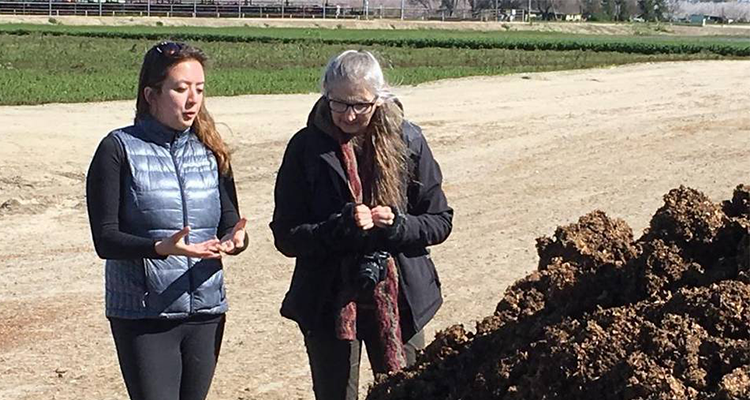The Modesto Bee
By John Holland
jholland@modbee.com
HILMAR- Two years into an experiment in dairy manure handling, the worms are proving their worth.
A $483,950 federal grant helped pay for a system where these creatures break down most of the nitrogen in water used to flush out dairy stalls. The partners aim to reduce the risk of water and air pollution.
As a bonus, the worms leave their own manure, known as castings, a pleasant-smelling fertilizer that can be sold to home gardeners and farmers.
“Worms are eating and they’re pooping and they’re producing worm castings, which is a highly beneficial soil amendment,” said Mai Ann Healy, regional manager for Biofiltro, the Chilean company that created the system.
The federal Natural Resources Conservation Service provided the grant for the project, taking place at Fanelli Dairy. An equal amount came from partners that include the dairy and Sustainable Conservation, a group based in San Francisco that helps businesses protect the planet.
The Modesto Bee on Tuesday paid its second visit since 2015 to the project, off Washington Road about 2 miles west of Hilmar. The worms do their work in a concrete box 160 feet long and 35 feet wide, and filled 3.5 feet deep with wood shavings. The wastewater is sprayed onto the top, and the worms wriggle through the shavings as they carry out the process over four hours.
Milk is the top-grossing farm product in the Northern San Joaquin Valley and statewide, but farmers also have to contend with the manure left behind. The standard practice is to irrigate feed crops at a rate that assures the nitrogen is taken up by the plants, rather than reaching streams or aquifers. This is done under permits from the state, which could someday require more cropland to dilute the contaminants.
Fanelli Dairy has 104 acres growing feed for its 750 cows, which produce milk for Hilmar Cheese Co. Co-owner Vic Fanelli said additional land would be too expensive, so he was happy to give the worms a try.
“This pretty much takes the place of 50 acres,” he said. “If it helps us and helps the industry, we’re all for it.”
The worm system has removed 75 percent to 98 percent of the nitrogen per day, said Joseph Choperena, a senior project manager at Sustainable Conservation. The range is so wide because the makeup of manure can change daily, he said.
The process also releases a nonpolluting form of nitrogen into the atmosphere while cutting down on nitrates, the form that can cause pollution.
Above: Mai Ann Healy, left, regional manager for Biofiltro, and Marsha Campbell, a farm advisor with the University of California Cooperative Extension in Stanislaus County, take a tour of Fanelli Dairy near Hilmar on Tuesday, checking out a pile of worm castings, which can be used as fertilizer. John Holland jholland@modbee.com 209-578-2385
Go to full story at The Modesto Bee

